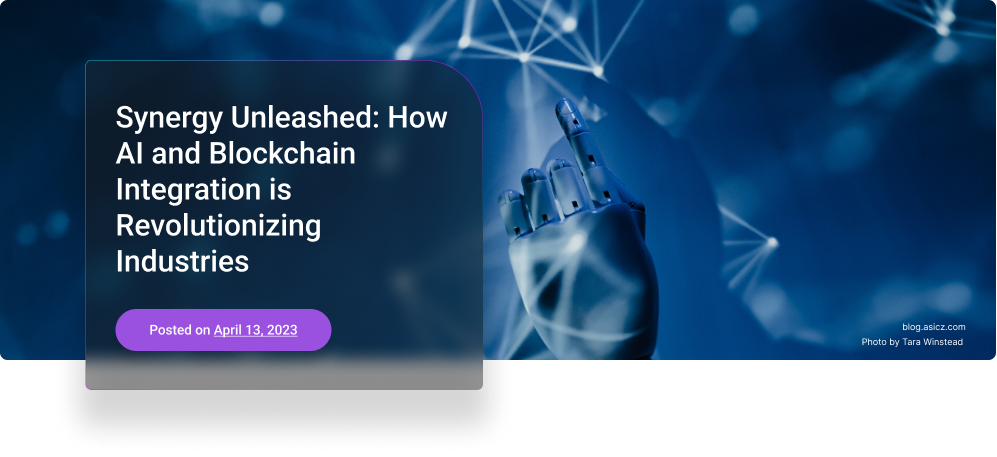Artificial intelligence (AI) and blockchain technology are two powerful innovations that have been transforming industries over the past decade. These two technologies have been predominantly discussed separately, but the integration of AI and blockchain has the potential to create a synergy that could revolutionize a range of industries. In this article, we explore the ways AI and blockchain are being integrated and the real-world examples that are driving this technological revolution.
Blockchain is a decentralized, secure, and transparent system for recording transactions across a network of computers. It has already proven its worth in the cryptocurrency industry, but the potential applications of blockchain technology extend far beyond that. On the other hand, AI is an umbrella term for computer systems that can perform tasks that typically require human intelligence, such as learning, decision-making, and problem-solving.
The integration of AI and blockchain has the potential to create more secure and efficient systems for data management, analysis, and decision-making. By combining these two technologies, businesses can create smart contracts, decentralized autonomous organizations (DAOs), predictive analytics, and fraud detection systems that are more efficient and secure.
One area where AI and blockchain are already being integrated is in the development of smart contracts. Smart contracts are self-executing contracts with the terms of the agreement between buyer and seller being directly written into lines of code. AI can be integrated into smart contracts to make them more intelligent and adaptable to changing circumstances. For example, a smart contract could be programmed to automatically adjust the price of a product based on the market conditions, and AI could be used to analyze market data to make that adjustment.
Another area where AI and blockchain are being integrated is in the development of DAOs. DAOs are organizations that are run by smart contracts and governed by a group of stakeholders. AI can be used to make decisions based on data, making the organization more efficient and transparent. For example, the DAO can use AI to analyze the financial data of a company and make investment decisions based on that analysis.
Real-world examples of AI and blockchain integration can be seen in the financial sector. JPMorgan has developed Quorum, a blockchain-based platform that leverages AI to improve the efficiency of financial transactions. Quorum uses machine learning to analyze data and make decisions, making it easier to identify fraudulent transactions and reduce the risk of errors. Another example is the blockchain-based platform developed by Ripple, which uses AI to optimize the efficiency of cross-border payments.
In the healthcare industry, AI and blockchain are being integrated to improve patient data management and drug development. Blockchain technology can be used to create a secure and transparent system for storing patient data, while AI can be used to analyze that data and make more informed decisions about treatment plans. Blockchain technology can also be used to improve the transparency of drug development, and AI can be used to analyze clinical trial data to identify potential issues and opportunities.
The integration of AI and blockchain has the potential to create a technological revolution that could transform industries ranging from finance to healthcare. By combining the power of blockchain technology with the intelligence of AI, businesses can create more efficient, secure, and transparent systems that can adapt to changing circumstances and make more informed decisions. As these technologies continue to advance, we can expect to see more innovative applications that leverage the power of these two technologies to drive the next wave of technological innovation.

